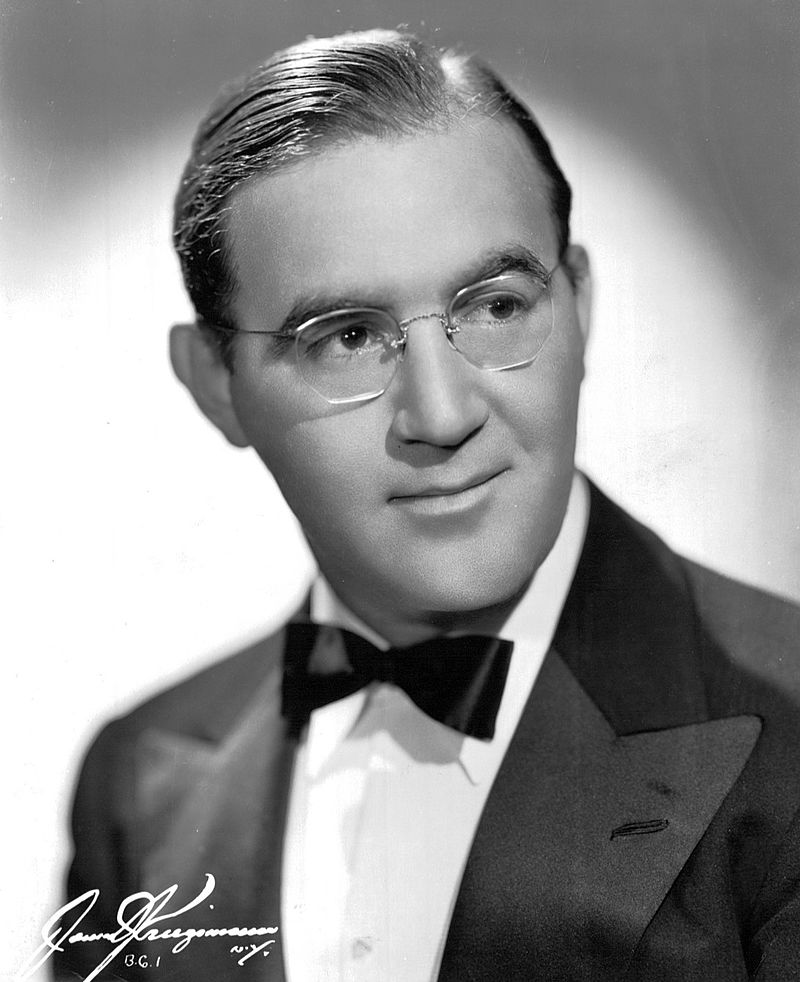
Benny Goodman

Benny Goodman
With extraordinary musicianship and virtuosity, dashing good looks and business acumen, the undisputed "King of Swing" Benny Goodman was a clarinetist who achieved superstar status. His band's performance at the Palomar Auditorium in Los Angeles, California on August 21, 1935 is widely recognized as the birth of "swing jazz." Swing would become the dominant form of American popular music from 1935 to 1946, a period known as the Swing Era.
Three years later Goodman would again create history by bringing his band, along with members of the Count Basie and Duke Ellington bands, to perform hot jazz in Carnegie Hall to a sold-out crowd.
This concert represented the accepted arrival of jazz into mainstream American culture (perhaps even world culture) and is widely regarded as one of the most important jazz events in the United States. This historic concert concluded with "Sing! Sing! Sing!" featuring Gene Krupa on drums and Jess Stacy on piano.
♫ ![]() Sing! Sing! Sing!
Sing! Sing! Sing!
Benny Goodman
In many venues in the United States, and particularly in the South, Jim Crow laws were in place mandating that Black and White musicians could not appear together on stage. Goodman insisted on hiring only the best musicians regardless of color and would cancel an engagement if the venue would not allow Black musicians to perform. It is for this reason that Goodman is recognized for his efforts in challenging the color barrier that Black jazz performers faced.





"Blues developed in the southern United States after the American Civil War (1861-65) and was largely played by Southern black men, most of whom came from the milieu of agricultural workers."





